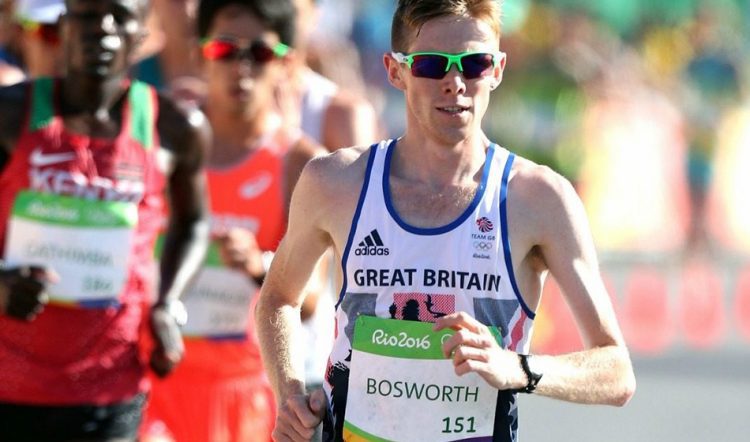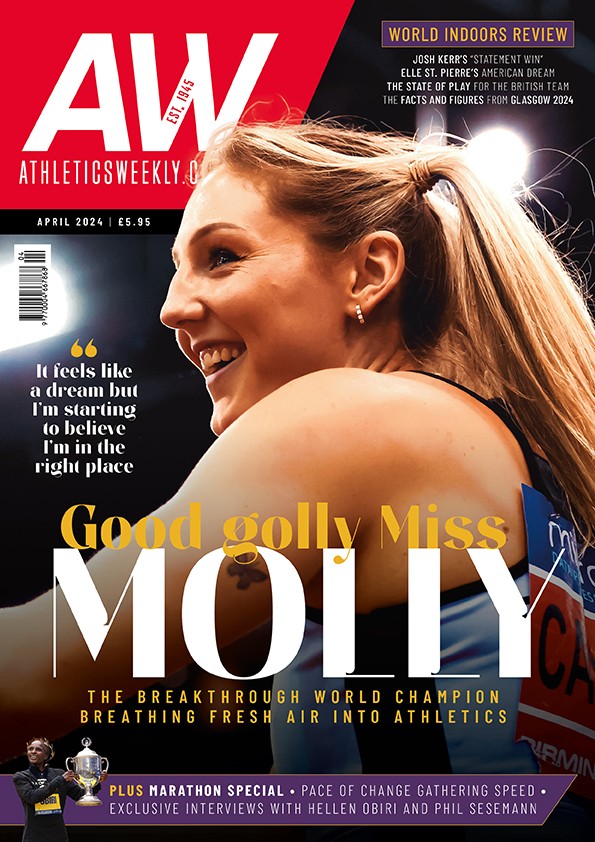Most athletes don’t choose when they get to retire, writes Katharine Merry, and it can be an incredibly difficult transition to make for many reasons
Retirement has felt like a recurring theme across the sporting world lately. Roger Federer and Serena Williams saying farewell to tennis have of course been the most high-profile examples but, even a little closer to home, Tom Bosworth and James Dasaolu have stepped off the track for good, while Mo Farah’s late withdrawal from the London Marathon in October heightened the discussion around how much longer he can keep going for.
Former British Lion Brian O’Driscoll made a TV documentary this year, speaking to a number of former sports stars about how difficult it is to move on from that purpose which defined your identity. I can completely relate to that. It really isn’t easy.
In my experience, I’ve found that most track and field athletes don’t choose to retire on their own terms. Jessica Ennis-Hill is probably the last one I can remember who was able to decide her retirement plan and not be forced out through injury.

Tom Bosworth (Mark Shearman)
For most it’s a really, really hard adaptation. Your mind’s willing to keep going but your body’s not able to and I think a lot of people, myself included, find that a very difficult period.
Athletes have spoken to me over the years and said: “What do I do? How do I approach it?” Jason Gardener was one. He was on the verge of retiring and he said: “I’m worried about how I’m going to replace the highs of track and field. How do I replace it?”
I said to him the key was not to try. You have to take it for what it was, take it for what it is, box it up, be proud of what you’ve done and do not try and replace it with something that you know is not going to come close in terms of highs.
I know I will never have anything in my lifetime that will replace the whole experience and complex emotions of my Sydney Olympic final. Life moments have been amazing but they are different. Utilise the skills and disciplines sport has taught you and channel them into a new area as those skills and disciplines cross over from sport to real life very well! Find something else that you enjoy and potentially that you’re good at.
I would still stand by that advice now.

Katharine Merry (Mark Shearman)
I was really lucky because, towards the end of my career, I started doing broadcasting work while I was still trying to compete so I had that transition. I had a path but most athletes don’t and that is a horrible situation to be in.
That’s why the sport has to encourage people to think about what they’re going to do and how they’re going to do it in terms of retirement because it’s a massive transition, absolutely huge. You completely lose your identity for a while because it feels like “If I’m not an athlete, then what am I?”
We do have brilliant role models who are showing that it is possible to do more than one thing. Laura Muir qualifying as a vet while competing at the top level is an outstanding example. But you have to work out what you’re like and what works for you.
I do think you always have at the back of your mind what might be next and I think athletes nowadays are better at that. This is where social media is actually playing a very positive role.
Athletes seem much proactive, whether it’s Lina Nielsen with her yoga or Harry Aikines-Aryeety with his fitness stuff, in terms of thinking about what they are going to do after their sporting careers are over.
Most people are not like Usain Bolt, Linford Christie or Roger Federer, they will have to make a transition to a different line of work. The majority of athletes have to do something else with their lives because they can’t afford not to. They haven’t made enough in the sport to do nothing.
I’m not sure there is enough support out there for people going through that – but that’s sport in general, isn’t it? It can be ruthless when you can’t do that job any more.
All this talk of retirement brings me back to Mo. He’s been in that transition, coming towards the end of his career, for a couple of years now. If Mo had announced he was retiring after pulling out of London with injury then nobody would have been surprised, but it says a lot about him that he hasn’t stepped away yet.
Let’s face it, he does not need to run again but he wants to, and that’s a big thing to me.

Mo Farah (Mark Shearman)
You can have all the money, but there are those who want to keep going purely because of their love of the sport. That is why we all started in the first place.
Sadly, age catches up with everybody and he has had a wonderful career. The window of opportunity when he was at his peak was open for quite a long time, allowing him to become one of the best ever.
I am hoping he will run London in April and maybe that will be his last hurrah. We will see.
There is always a danger that the longer an athlete goes on, people might start to forget just how good an athlete was, but actually I feel with Mo this isn’t the case, such was his career.
I feel though that whichever version of Mo hopefully turns up on the start line in April, we all know it will still be a decent one. He deserves a fitting send-off, from the public and for himself too.
» This article first appeared in the November issue of AW magazine














